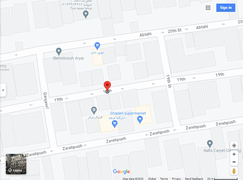NF-kappa B signaling pathway is associated with metformin resistance in type 2 diabetes patients
NF-kappa B signaling pathway is associated with metformin resistance in type 2 diabetes patients
Introduction: Metformin is an essential medicine that is most widely prescribed frontline for the treatment of Type 2 diabetes (T2D). Metformin upgraded glycemic control in T2D patients without hypoglycemic effects in patients. This assessment aims to understand molecular mechanism mechanisms in non-responder patients to metformin.

Abstract
Introduction: Metformin is an essential medicine that is most widely prescribed frontline for the treatment of Type 2 diabetes (T2D). Metformin upgraded glycemic control in T2D patients without hypoglycemic effects in patients. This assessment aims to understand molecular mechanism mechanisms in non-responder patients to metformin.
Methods: Gene expression profiles of responder and non-responder T2D patients to metformin are extracted from Gene Expression Omnibus (GEO) and are evaluated by the GEO2R program to find the significant differentially expressed genes (DEGs). The significant DEGs have been studied via action map gene ontology analyses.
Results: Results indicate that 563 significant DEGs discriminate non-responders from responder groups. "NF-kappa B signaling pathway" and 11 DEGs including BIRC3, CCL4L2, CXCL2, ICAM1, LYN, MYD88, RELA, SYK, TLR4, TNFAIP3, and TRIM25 were pointed out as core of drug resistance.
Conclusion: It can be concluded that there are differences between gene expression analysis, the response of diabetic patients to metformin. Results indicate that dysregulation of the "NF-kappa B signaling pathway" and TNFAIP3, BIRC3, RELA, MYD88, TLR4, and ICAM1 is associated with drug resistance in T2D patients.




ارسال نظر